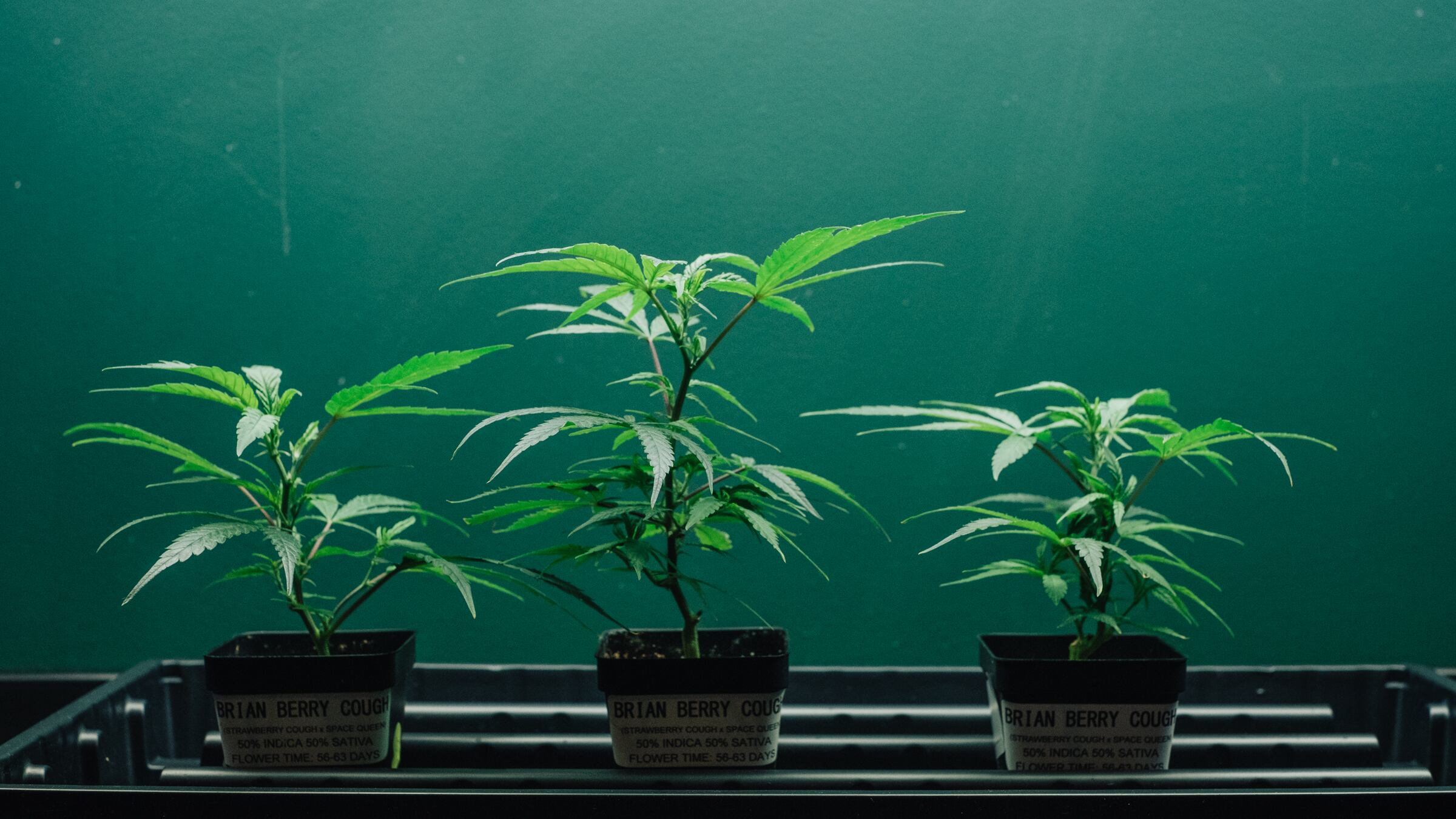The state of Oregon has stumbled into another frustrating computer glitch involving a tech contractor—this one hired to ensure that recreational cannabis stays off the black market.
The online tracking system that monitors each cannabis bud from nursery to retail checkout counters has annoyed growers and distributors at the height of marijuana harvest season, which is occurring now.
In complaints to state officials and interviews with WW, growers say the already complicated tracking system, known as Metrc, has slowed to a crawl, burdened by the large number of users.

The explosive growth of recreational weed has resulted in tax receipts far beyond the state's original projections. For people in the burgeoning recreational cannabis industry, cumbersome record-keeping is an unpleasant cost. There are only two options: live with the difficult software or die by the hand of state regulators.
Beau Whitney, a Portland cannabis grower and economist who specializes in studying the marijuana market, says he has a designated employee whose main duty is to deal with the Metrc tracking system. Metrc is so slow and baffling, Whitney says, that dealing with the software is nearly a full-time job.
"It's very time-consuming, and it's just kind of confusing to navigate," says Whitney. "But it's an important tool. Fundamentally, it's absolutely essential to have tracking to drive people into the legitimate market."
The Metrc software plays a pivotal role in Oregon's legal cannabis market. When voters approved recreational cannabis in 2014, state officials assured skeptical feds that legal pot wouldn't leak onto the black market, or across borders into states where weed is still outlawed.
To keep that pledge, the state awarded a $1.7 million contract in 2015 to a Florida-based company for cannabis tracking software that all growers, distributors and stores are required to use.
Workers at marijuana farms must record a serial number for each seedling and mature plant, the exact location of each plant, the cannabis's life cycles as it matures, the waste produced during harvest, and the amount of flower packaged for sale—among several other data fields.
"It's such an important role," Whitney says. "Your business's life is dependent on compliance."
The winning bidder was technology company Franwell, which operates its cannabis tracking system in seven states. The decision was controversial: BioTrackTHC, the runner-up in the contract competition, sued the state in Marion County Circuit Court for allegedly changing the procurement rules in the middle of the bidding process. The lawsuit was dismissed.
Franwell's software, Metrc, debuted in Oregon in 2016. But in the past year, growers have become increasingly irate over how Metrc works.
A group of users regularly gives feedback on the Metrc system to regulators at the Oregon Liquor Control Commission, which oversees recreational cannabis.
About six weeks ago, the group started voicing complaints about slow connections during peak hours and long loading times for the system's meticulous "manifest" process, which documents the inventory of plants.
"We would happily pay money, if we had to, to increase server speed," said a wholesaler who could not be clearly identified on an audio recording of a Sept. 18 meeting with OLCC and Metrc representatives. "I've been keeping track of the speeds of that cog spinning, and Friday nights when the dispensaries get really busy is when it really slows down.…It's the slowest with editing manifests. That takes forever."
The users also told the OLCC they want a centralized guide to the tracking system, and requested shortcuts within the system that would cut down on the amount of time it takes to inventory product.
The state regulatory agency acknowledges the grievances.
"Some concerns were raised that the manifest was one aspect of the cannabis tracking system where the load time was particularly slow," says OLCC spokesman Mark Pettinger. "It was one of two things that were mentioned. The other was the load time at peak-time usage, which makes the system drag. We're aware of those concerns."
Myron Chadowitz, who owns a cannabis farm in Eugene, says he wastes an hour each day updating manifests.
"What should be a five-minute operation can now become a half-hour operation," Chadowitz says. "We've learned to live with the Metrc system. I've found ways to get around [some] things. But there's no work-around for a system going slowly."
Representatives from Franwell did not respond to WW's requests for comment.
Meanwhile, Gov. Kate Brown and state law enforcement officials have gone back and forth on the effectiveness of Oregon's efforts to keep cannabis out of the black market.
A draft of an Oregon State Police report leaked in January said that Oregon is one of the largest producers of cannabis sold on the black market and only about 30 percent of cannabis sales happen within the legal market—even with strict regulations and the tedious tracking software.
Attorney General Jeff Sessions seized on OSP's report as an opportunity to criticize the state's permissive drug laws. In a letter to Gov. Kate Brown, Sessions reaffirmed his belief that "Congress has determined that marijuana is a dangerous drug and that the illegal distribution and sale of marijuana is a crime." Brown and other state officials, including OSP, responded by denouncing the draft as inaccurate and incomplete.
Whitney and other growers have a more immediate beef: They say the system is costing them money.
"In economics, it's called opportunity cost," Whitney says. The money spent paying someone to input data could be spent on growing a bigger, better crop. He estimates the average pay for someone doing data entry is between $15 and $20 an hour for about 20 hours each week—and more during peak times.
"But it just has to be done," he says, "and if you don't do it and you get a slap on the wrist, you lose your license and then you lose your business."

